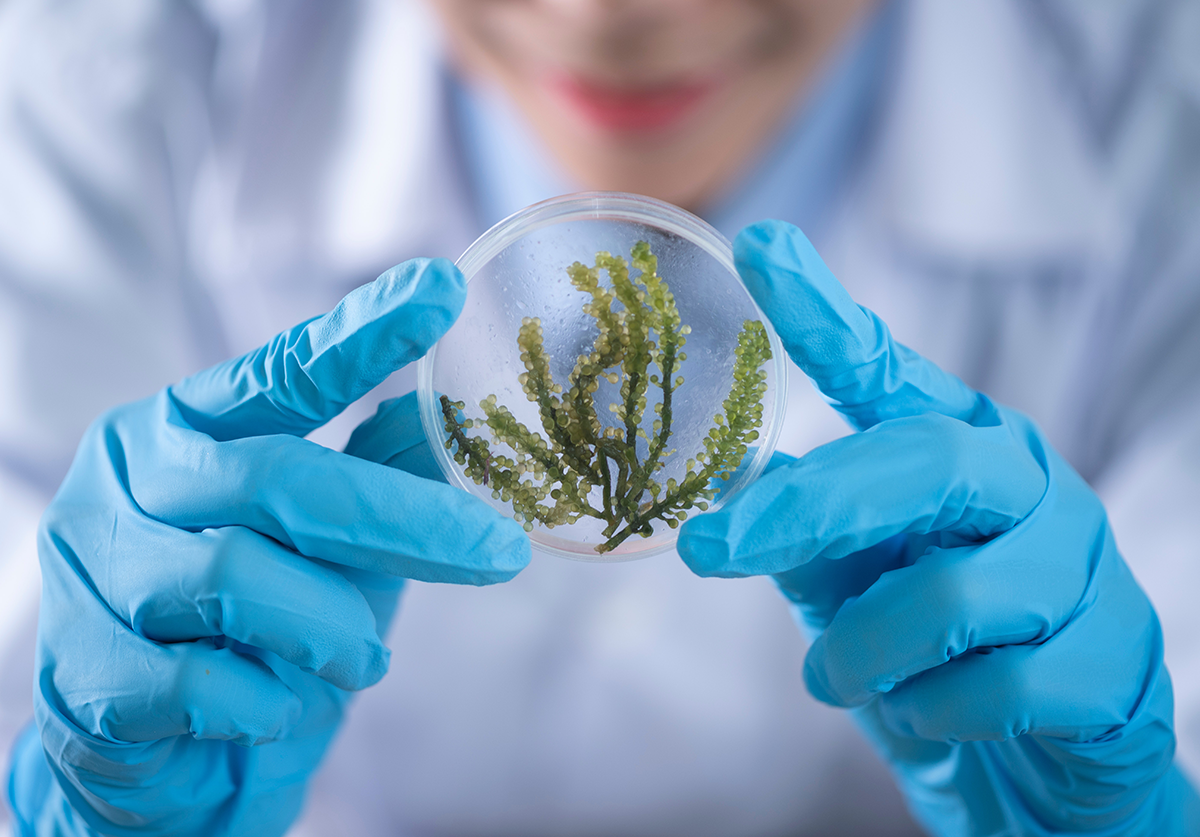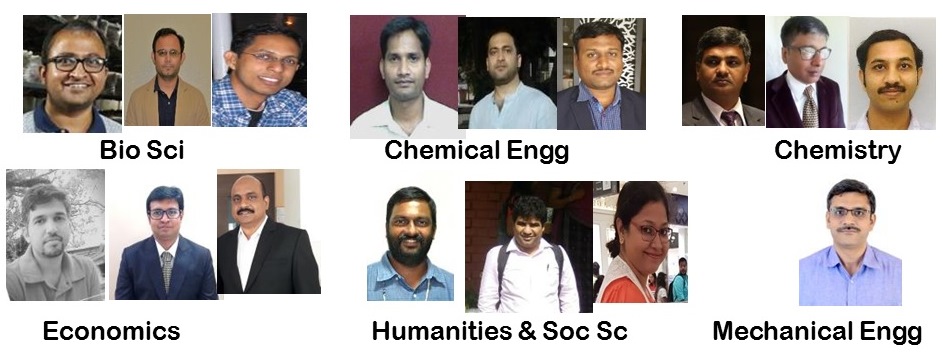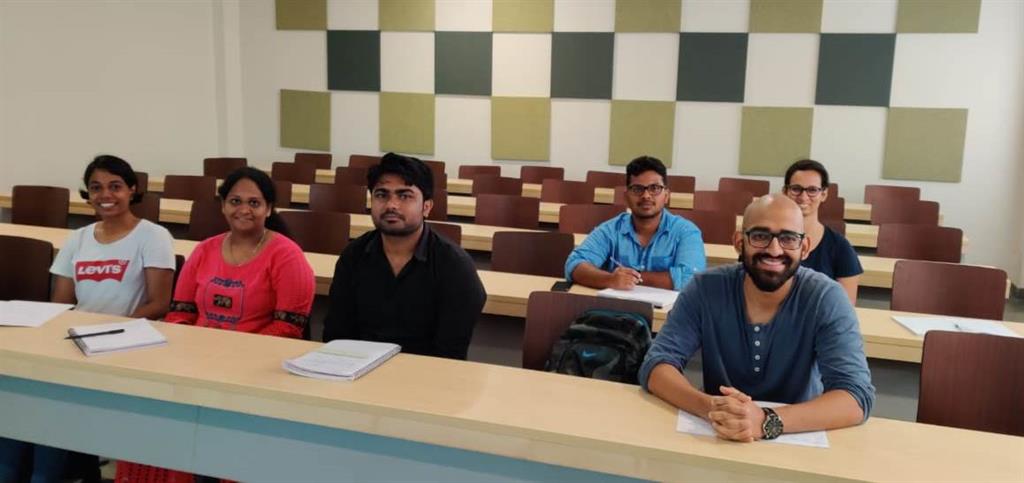Sanitation Technology
This course aims to give the participants a review of the fundamentals as well as the latest technological developments applied in the field of sanitation. Urban Drainage and Sewerage, Carbon, nitrogen and phosphorus removal & recovery; sludge treatment, Site evaluation; toilets; onsite sanitation systems; emptying and transport; established and transferring technologies for dewatering, stabilization, pathogen inactivation and nutrient management, urban low cost drainage, Innovation processes, Intro & Exercise technology selection tool / decision support system; discuss outcomes.
Sanitation and Public Health
This course will have four modules – Introduction to Sanitation, Sanitation system and services, Public Health and Analysis of sanitation flow. Background on urban sanitation, Material flow analysis, Monitoring frameworks, Shit Flow Diagrams, Human Health Hazards and Waste, Review and Assessment of Transmission Routes, Review and Assessment of Transmission Routes, Disease Cycles – Lifecycles & Vectors, Control Measures, Risk Evaluation Tools, Urban development trends, demography, Urban sanitation planning & programming.
Research Practice
This course is designed to train the students towards acquiring competence in research methodologies. The course will be conducted in terms of actual participation in Research and Development Work. Each student will be assigned to a faculty member to work on specified projects. The student will be required to present a number of seminars in his research area in a structured manner.
Sanitation Governance & Behavioural change
This particular course will have two modules – Sanitation Governance and Behaviour change & Advocacy. Water & sanitation governance: definitions, debates, controversies, Power relations among actors in the local and global levels: Gender, class & race relations and power asymmetries, Practices of coordination & decision, making around contested water distribution, Case studies on regulatory frameworks around the world– how is sanitation managed: where, how and why, Everyday sanitation from different perspectives. Behaviour with reference to Societal and cultural aspects, Types: Knowledge, motivations and reactions, Reinforcements: Norms and behaviour Settings.
Sanitation financing & Project Management
This course will have two modules – Sanitation Financing and Project Management. Introduction to financial viability, CAPEX, OPEX, business models and PPP of sanitation project, Calculating CAPEX and OPEX of a sanitation project and developing a business model, Local authority/municipal budgeting and public/government financing, Key aspects of project management including stakeholders’ relationship, people management, risk management, budget management, reporting, Objective Oriented Project Planning.
Emergency Sanitation & Leadership
This course will have two modules – Emergency Sanitation and Leadership. The evolution of humanitarian aid:historical events and the humanitarian system as it stands today. Overview of the international legal framework (Refugee law, International Humanitarian Law-IHL, International Disaster Relief Law-IDRL), code of conduct and guiding principles of humanitarian action. Standards applied by relief agencies and global cluster, Sphere, WASH cluster. Disaster cycle, risk reduction/ response/ recovery/ development, emergency response phases.Overview of relief organizations, their mandates, their commitments and priorities in emergencies.
Electives
Environmental Biotechnology & Solid Waste Management
Principles, concepts and applications of Biotechnology to the management of environmental problems, Microbial technologies for waste management, Bioremediation of toxicants, Microbial systems for detoxification, Microbial technologies for waste management, Biochemical kinetics and engineering, Concept of rDNA technology, Regulation and ethics.
Environmental Management Systems
Introduction to air & water pollutants & solid wastes; sampling & analysis techniques; impact of these on environment; national & international regulations; ISO series; conventional & nonconventional energy resources; life cycle analysis; environmental audit; sustainable developments; case studies.
Study in Advanced Topics
In this course students will be assigned study work in advanced areas of professional interest. Each student will work under the overall supervision and guidance of a faculty member and will in the end submit a project report encompassing critical review of the material studied. The organisation and evaluation of the course would be achieved through seminars, group discussions, project report etc. The course will be conducted by the team of teachers who provide guidance for study work.
Biostatistics & Computers in Public Health
Introduction to data classification, analysis and probability; statistical inference, estimation and hypothesis testing; linear regression and correlation; design of experiments; analysis of variance; non parametric procedures & tests; statistical quality control; experimental design in clinical trials and validation; basic techniques in optimization. Introduction to computer and its component, operating systems; principles and use of standard software packages having application in drug design, development, analysis, etc; principles of software creation; processing concepts, flow charting and algorithms, programming constructs, programming languages, program development sequence; information systems; need, significance concepts, their analysis, design and implementation; software life cycle with special reference to software planning and maintenance.
Bioconversion Technology
Waste and by-product utilization; downstream processing; biogas production; principles of biodegradation process parameters; bioreactor design and operation; exploitation of waste streams enzyme-based bioconversions of high value products.
Environmental Health
Environmental Health and its importance, water pollution, air pollution, automobile pollution, pollution due to chemicals used in agricultural sector, handling and disposal of domestic and industrial refuse, incineration of waste materials, techniques for studying, monitoring and controlling pollution, effect on health, vector control, effect of high frequency electromagnetic radiation, nuclear radiation, hazardous wastes, occupational health.
Water & Waste Water Treatment
Water supply and waste water systems; capacity requirements; analysis of water and waste water; treatment requirements; unit operations and processes of treatment, design of treatment units; disposal of waste water and sludge; design of sewers and water distribution networks; rural sanitation; effluent repurification and reuse.


 An Institute of Eminence
An Institute of Eminence











